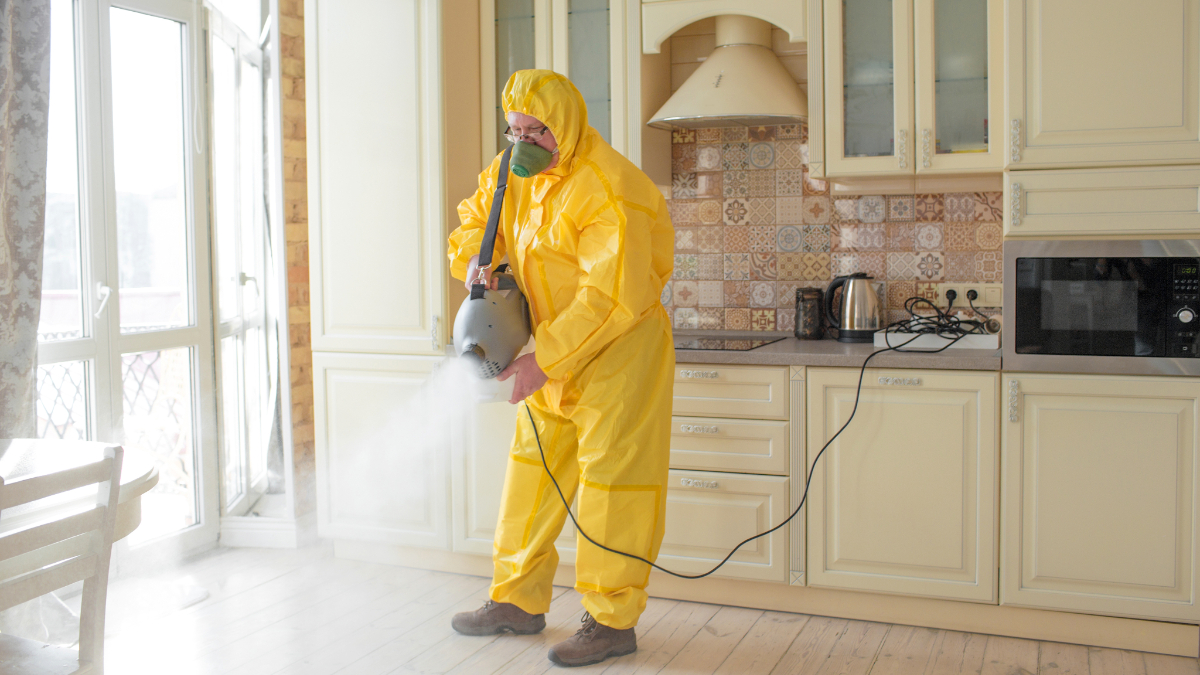
Dealing with pests in your home can be a frustrating and even dangerous experience. But there’s no need to call in the professionals every time you spot a roach or mouse in your kitchen. With a little knowledge and some simple tips, you can take care of most household pest problems on your own.
Identify the type of pest you’re dealing with
The first step to take when you have a pest problem is to identify the type of pests you’re dealing with. This will help you choose the most effective method of dealing with them. Common household pests include ants, cockroaches, spiders, rats, and mice. Each type of pest requires a different approach to control and elimination.
There are a few simple ways to identify which type of pest you’re dealing with:
- Look for telltale signs of infestation, such as droppings, cast-off skins, or damage to food packaging
- Set up a trap using bait that is specific to the type of pests you’re targeting
- Consult an expert if you’re unsure about what type of pest you’re dealing with
Once you’ve identified the type of pest, you can take steps to control and eliminate them.
Contact pest control
If you think you may have a pest problem, your first step should be to contact a professional pest control company. Pest control professionals from Saltlakepestcontrol.com recommend this step if you have trouble identifying the pest you are dealing with or if you can’t control the infestation using conventional means. Do-it-yourself methods are often ineffective and can make the problem worse. In addition, some pests, such as termites, can cause significant damage to your home if not treated properly. Pest control companies have the experience and knowledge to properly identify and treat any type of pest problem. Pest control professionals will also be able to provide you with tips on how to prevent future pest problems.
Take action to prevent pests from entering your home
If you’re dealing with a pest invasion, the best thing you can do is take action to prevent pests from entering your home in the first place. Here are some tips:
- Keep your home clean and free of clutter. Pests are attracted to places where they can find food and shelter.
- Inspect your home regularly for cracks and crevices that pests can use to enter. Seal up any openings you find.
- Be aware of what kinds of pests are common in your area, and take steps to deter them. For example, if you live in an area with a lot of mosquitoes, make sure to use mosquito repellent and wear long sleeves when outdoors.
- If you have pets, keep their food and water dishes clean, and don’t leave pet food out overnight.
- Store food in airtight containers, and dispose of garbage regularly.
- Keep your yard tidy, and remove any standing water, which can attract pests.
Following these tips will help to make your home less attractive to pests, and make it easier to deal with a pest invasion if one does occur. Once you’ve gotten rid of the pests, these steps are also effective in preventing them from coming back. You may also include other prevention measures such as the ones described below.
Wash all bedding
One of the most important things you can do to get rid of pests is to wash all of your bedding in hot water. This includes your sheets, blankets, pillowcases, and even your mattress cover.
This will kill any pests that are currently living on your bedding and will also help to prevent new ones from moving in. Be sure to wash your bedding at least once a week.
Vacuum regularly
Another important step in getting rid of pests is to vacuum your home regularly. Vacuuming helps to remove food and debris that pests can use as a food source.
It also gets rid of many of the eggs and larvae that some pests lay. Be sure to vacuum all carpets, furniture, and flooring, especially in areas where you think pests may be present.
Keep your home clean
One of the best ways to prevent pests is to keep your home clean. Pests are attracted to food and debris, so the cleaner your home is, the less likely they are to move in.
Be sure to wash dishes promptly, sweep and vacuum regularly, and store food in airtight containers. In addition, don’t forget to empty your trash cans regularly.
These are just a few of the many steps you can take to get rid of pests. If you have a serious problem, however, it’s always best to contact a professional pest control company for help.




